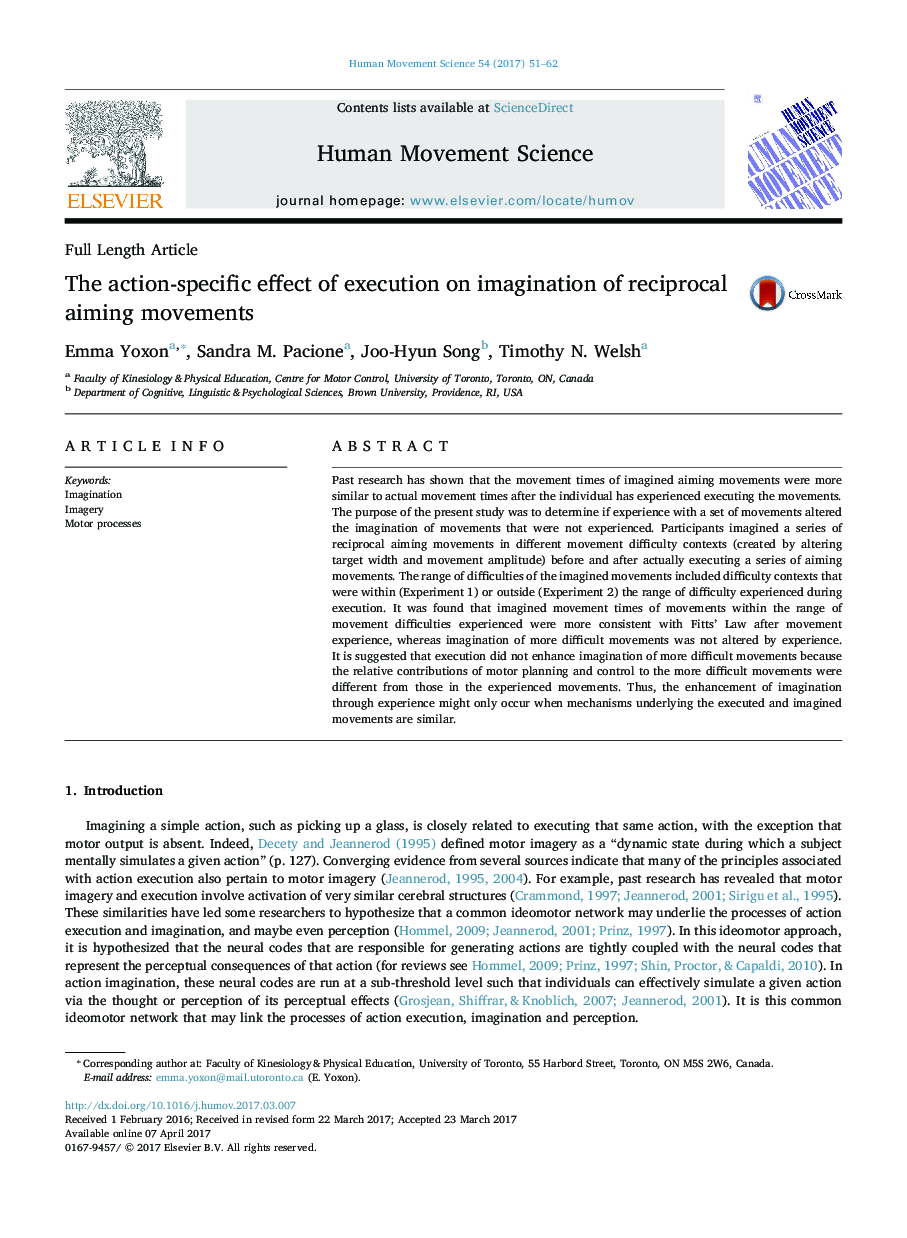| Article ID | Journal | Published Year | Pages | File Type |
|---|---|---|---|---|
| 5041966 | Human Movement Science | 2017 | 12 Pages |
â¢Imagined movement time (MT) has been shown to be closer to actual MT after execution experience.â¢Present work studied how the difficulty of experienced movement affects imagined MT.â¢Change in imagined MT was greater when the difficulty of imagined movements did not exceed that of experienced movements.
Past research has shown that the movement times of imagined aiming movements were more similar to actual movement times after the individual has experienced executing the movements. The purpose of the present study was to determine if experience with a set of movements altered the imagination of movements that were not experienced. Participants imagined a series of reciprocal aiming movements in different movement difficulty contexts (created by altering target width and movement amplitude) before and after actually executing a series of aiming movements. The range of difficulties of the imagined movements included difficulty contexts that were within (Experiment 1) or outside (Experiment 2) the range of difficulty experienced during execution. It was found that imagined movement times of movements within the range of movement difficulties experienced were more consistent with Fitts' Law after movement experience, whereas imagination of more difficult movements was not altered by experience. It is suggested that execution did not enhance imagination of more difficult movements because the relative contributions of motor planning and control to the more difficult movements were different from those in the experienced movements. Thus, the enhancement of imagination through experience might only occur when mechanisms underlying the executed and imagined movements are similar.
